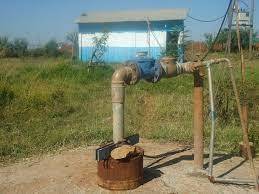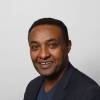
WaterWorX project: WOP Bahir Dar Ethiopia
- Ethiopia
- 31-12-2026


| Region: | Bahir Dar |
| Period: | 2022-2024 |
| Project partners: | Bahir Dar Water Supply and Sewerage Service, Helsinki Region Environmental Services HSY |
| Funding: | EU-WOP Programme, a European Union funded initiative managed by GWOPA/UN-Habitat |
Water Operators Partnership for Performance Improvement of WASH Services in Bahir Dar
The WOP in Bahir Dar will focus on capacity building of Bahir Dar water utility for increased access to reliable and sustainable water supply and improved sanitation services.
Based on existing assessments of the challenges in Bahir Dar, the prioritized target areas for this WOP are:
The objective of the WOP is to promote partnerships for systematic knowledge exchange to achieve improved availability and sustainable management of water and sanitation for all, capacity building among water and sanitation professionals, and contribute to Sustainable Development Goal 6.
The first steps in this WOP will be to work on a combination of capacity building, work process improvement, organizational structure, implementation of new (IT) technologies and plan development. Although the list for potential improvements is long, seven Working Areas are regarded as the most urgent to maintain and improve WASH service delivery in the short to medium term:
1. WOP project management/ Programme support
The WOP will be supported at a distance and by Ethiopia based staff working for the mentors. Activities in this Work Area include implementing the knowledge management activities (participate in EUKnoW, develop a reference project, national and international knowledge exchange visits to Finland and Addis Ababa, contribute to the EU WOP learning program, develop knowledge letters) and communication plan.
2. Enabling environment & governance
A benchmarking expert from the EBC will be engaged to further the first concept of a benchmarking system, that was introduced through another project. This Work Area will collect data for management to act on actual performance data and compare performance with colleague utilities in Ethiopia.
3. Leadership and management capacity (indicated as 'other' in the Logical Framework)
Management and leadership will be addressed in two ways:
The above needs to be supported with frequent and internal communication, for which instruments and facilities must be available. To this end, improved internal communication facilities will be realized in this WOP (internet, computers). This is also supportive to the data collection/analysis, required in the below activities.
4. Customer relations and billing
The following activities will be executed:
5. Water distribution (NRW reduction)
Another factor that prohibits establishing sustainable water services is a high NRW percentage, leading to wastage of water (physical losses) and reduced billing potential (apparent losses). NRW needs to be reduced to increase revenues and save precious water that can be sold to other/more customers. A NRW reduction plan will be developed based on:
6. Asset management
Proper asset management starts with a lifecycle approach and changing from a reactive to a pro-active approach in technical operations. The objective of this Work Area is to register above and underground assets. If time allows this will be followed by the development of a replacement and maintenance policy. Such a shift towards pro-active maintenance requires many years and financial resources.
This Work Area starts with asset inventories and basic data collection about asset performance:
7. Low-income area management
Investments will be mobilized to provide access to water for approximately 3,300 people. Project implementation includes community management and WASH awareness. A second activity focuses on training to write investment proposals to enable BWSS to attract additional funding from other financiers.
For questions, please contact Daniel Truneh, project manager in Ethiopia
daniel.truneh@vei.nl